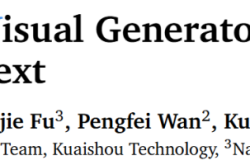Up to 30% of Apple tax triggered dissatisfaction of more and more Internet celebrities
![]() 09/15 2024
09/15 2024
![]() 679
679
Apple is expanding its in-app charging range on creator platforms, including Patreon. Apple deducts 30% of the commission from purchases and donations within iOS apps, which directly affects creators' income.
However, industry experts said that Apple did not provide corresponding returns while charging this fee.
Some dissatisfied members of the Internet celebrity industry said that Apple's in-app charges were eroding creators' income without providing much value. The tech giant charges a 30% commission on transactions made through iOS apps, a practice that has spread to more creator platforms. Patreon has become the latest platform to be affected, joining the ranks of Substack, YouTube, Facebook, and Instagram.
Apple has also imposed these fees on smaller platforms used by creators to make money, such as Kajabi, Mighty Networks, and Passes. The fee deducts a certain percentage from donations and purchases made through Apple mobile devices, affecting marketers, fans, and creators themselves.
As the smartphone market matures, Apple hopes to generate more profits through its services sector. While this makes financial sense, it represents a significant shift for Apple, which has long supported artists and other creative talents.
"Apple has indeed had a positive impact on the creator economy," said Lindsey Gamble, who advises internet celebrities on marketing strategies. "But the current 30% fee is having a negative impact on creators."
Gamble pointed out that Apple has raised the cost for creators to reach a wide audience, increasing the burden on their businesses. These fees also reduce the amount of donations and other support creators receive from fans, forcing them to either raise subscription prices or bear additional costs themselves.
Apple is not the only platform that takes a cut from creators' income.
YouTube also takes a share of creators' advertising revenue. But the difference is that YouTube provides a clear service by placing ads on its platform and sharing revenue with its creators. Industry insiders say this is much more than what Apple offers.
Creators also complain that Apple hasn't done much for them in recent years, apart from charging more fees. Apple once led the podcast field but later neglected it, ceding its lead to YouTube and Spotify.
Video streaming and internet celebrities
Apple has disappointed creators with its performance on major entertainment projects.
While Apple's Apple TV+ video streaming service has invested heavily in programs and movies, its primary partners are Hollywood stars, ignoring social media creators. This contrasts sharply with some other streaming services that have tried to embrace internet celebrities.
Hulu has two reality shows starring TikTok celebrity families: "The D'Amelio Show" and "The Secret Lives of Mormon Wives."
Netflix produced a reality show about TikTok's content house, Hype House, while HBO Max offers its own programs for Rosanna Pansino and Lauren Riihimaki. Amazon is the latest streaming service to welcome internet celebrity content by partnering with YouTuber MrBeast.
Apple didn't have to ignore internet celebrities in its streaming content strategy. Another tech giant, YouTube, has made significant progress on TV screens without relying on Hollywood-style content.
As for podcasts, Apple launched a paid subscription feature in 2021, including the opportunity to display at the top of Apple Podcasts subscriptions. Although this feature is a valuable discovery tool for podcasters, Apple has not further developed it since then, and its investment in expanding the podcast ecosystem is inferior to that of competitors.
Here 30%, there 30%
Despite disappointing creators with creative projects, Apple ensures that it charges fees from many apps that creators use to make a living.
Patreon is the latest creator platform affected by Apple's in-app fees. Starting in November, all in-app purchases made on Patreon through iOS devices will be subject to a 30% revenue share. Patreon gives creators two options: raise in-app prices or bear the costs themselves. There is also an option to direct fans to Patreon's website for subscriptions, but this is not recommended by Patreon itself.
But Patreon is far from the only platform affected. On YouTube, fans can donate to creators through features such as SuperThanks, Superchats, and Stickers. If these donations are made through the iOS app, they are also subject to Apple's fees.
How should creators respond?
One significant challenge creators face is that they cannot change Apple's policies or priorities. But they can try to bypass these fees - and many are doing just that.
An insider in the creator economy, who asked to remain anonymous to protect their relationship with Apple, said that the apps they work on intentionally direct traffic to websites and offer discounts for subscribing that way.
"Founders can't afford to lose 30% of each app subscriber," the person told Business Insider.
This practice may become increasingly common.
"As more creators rely on subscriptions and tips for profit over time, these fees could become a bigger problem and could lead more creators to view Apple as taking rather than giving to the creator economy," Gamble said.
Jim Louderback, a creator economy consultant, recently wrote in his newsletter "Inside the Creator Economy" that creators should boycott Apple products.
"Why don't creators unite to boycott all Apple products?" Louderback wrote. "The Google Play Store has lower fees, but there are also excessively high costs that affect creators. Perhaps a creator-friendly White House could add this to its actions against Apple's monopoly - after they figure out how to punish Google for its violations. Creators have even more reason to unite to defend their rights."








